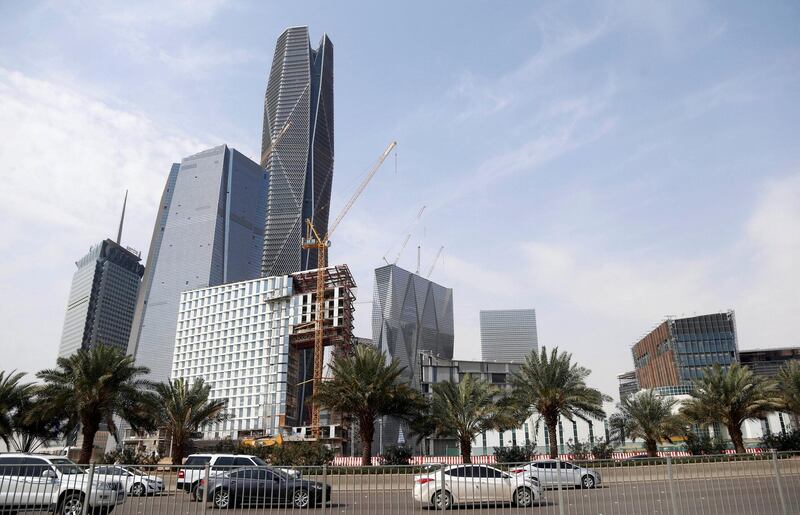Saudi Arabia's sovereign wealth fund, the Public Investment Fund, raised $11 billion (Dh40bn) through an international syndicated loan facility, the first commercial loan deal as part of its medium-term debt funding programme.
“This is the first step in incorporating loans and debt instruments into PIF’s long-term funding strategy,” Yasir Al Rumayyan, the managing director of PIF, said in a statement on Monday.
“It is important to establish a core banking group as we continue to expand our
activities and develop into one of the most prominent users of banking services in the
region.”
The fund said it would use the proceeds of the new facility for general corporate purposes. The PIF is at the heart of Saudi Arabia's economic diversification programme as the country seeks to cut reliance on oil revenues to fuel its economy. In recent years, the fund has been actively building stakes in local and international companies.
______
Read more:
[ Saudi Arabia’s sovereign wealth fund increases stake in Acwa Power ]
Saudi Arabia's first wind project receives four bids
______
The fund, along with Abu Dhabi’s strategic firm Mubadala Investment Company, is part of the core investor group in Japanese SoftBank Group’s $93bn Vision Fund, which spends capital in technology sectors such as artificial intelligence and robotics.
In July, the sovereign wealth fund increased its shareholding in renewables developer Acwa Power, based in Riyadh, raising it to 25 per cent, with its latest 15.2 per cent direct stake in addition to its previous 9.78 per cent through its wholly owned subsidiary Sanabil Direct Investments Company.
PIF, which has more than $250bn in assets, originally sought to raise between $6bn to $8bn, according to earlier media reports. However, Mr Rumayyan said, the total size was raised higher than initially planned due to "strong interest and favourable pricing" for the deal.
Corporates globally are taking advantage of lower borrowing costs ahead of rate hikes by the US Federal Reserve later this month, and likely again by the end of the year.
Last year, the fund outlined its core funding structure, which includes capital injections and asset transfers by the government; retained investment returns, and loans and debt raise by PIF. The fund also established new treasury function during the Future Investment Initiative forum held in Riyadh in October 2017.







